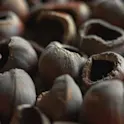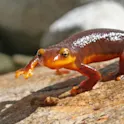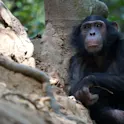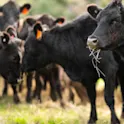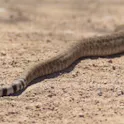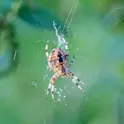Stressed rattlesnakes found to calm down in the company of a nearby ‘friend’
By Deborah Pirchner, Frontiers science writer Image: Jasper Nance/Flickr (CC BY-NC-ND 2.0) When a creature’s stress levels decrease because of the presence of a companion, it is known as social buffering. In highly social animals, such as mammals and birds, this phenomenon is well studied. Now, researchers have examined social buffering in rattlesnakes and found that the presence of a second snake significantly reduced rattlesnakes’ change in heart rates after they experienced disturbance. It is the first evidence of social buffering in reptiles. When animals suffer from acute or chronic stress, they produce more hormones causing shifts in the nervous system, immune response, and behavior. Some animals, if they are in the presence of a conspecific, can modulate their response to buffer stress. This is known as social buffering. There is some research suggesting that snakes can exhibit complex social behavior. Nevertheless, social buffering in reptiles, as well as in other asocial organisms and solitary foragers, hasn’t been studied extensively. Now, researchers in the US have examined if rattlesnakes inhabiting Southern California use social buffering to alleviate acute stress. “We showed that when two snakes were together and experienced a stressful situation, they could buffer each other’s stress response, much […]

